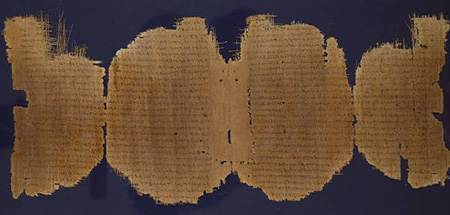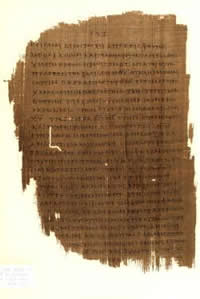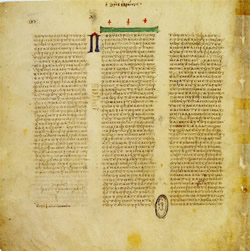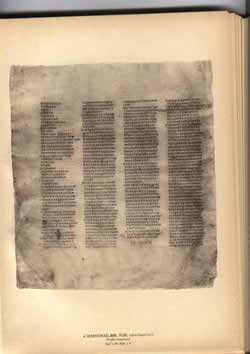For Sunday June 26, 2022
Lectionary Readings (Revised Common Lectionary, Year C)
2 Kings 2:1–2, 6 –14 or 1 Kings 19:15–16, 19–21
Psalm 77:1–2, 11–20 or Psalm 16
Galatians 5:1, 13–25
Luke 9:51–62
From Our Archives
For earlier essays on this week's RCL texts, see Dan Clendenin, Walking the Way of St. Francis (2016); and Debie Thomas, Truth in Advertising (2019).
The gospel this week begins a long section right in the middle of Luke that's typically called his "travel narrative" or "journey to Jerusalem." The tone and content of this section clearly pivot from what's come before, and differ from what comes after it.
Luke 9:51 says that “when the days drew near for him to be taken up to heaven, Jesus resolutely set his face to go to Jerusalem." Luke repeats this journey motif at least eight times in this twenty-page section, emphasizing that Jesus is heading inexorably to meet his fate in Jerusalem. Nothing will stop him. It is his divine destiny. The travel narrative ends ten chapters later with his triumphal entry into Jerusalem, where Luke says that "every day he was teaching at the temple" (19:47).
As with many journey stories — think of Homer's Odyssey or John Bunyan's Pilgrim's Progress, Luke isn't primarily interested in geography. This isn't a travelogue. If you fire up Google Maps, you'll see that the path that Jesus took to Jerusalem is erratic at best. Luke is more interested in theology here than with geography.
As Jesus "set his face" to Jerusalem, he sent his advance team to a Samaritan village to prepare for his arrival. But as had often been the case in the previous three years, "the people there did not welcome him." Because they rejected Jesus, or maybe because of the ethnic hostility between Jews and Samaritans, James and John exploded in rage: "Lord, do you want us to call down fire from heaven to destroy them?" In their fit of sanctimony, they wanted a public display of the wrath of God that would consume their perceived enemies.
 |
|
Third Century Greek Papyrus of the Gospel of Luke.
|
There are two times in the Old Testament when Elijah called down God's fiery judgment (1 Kings 18:38, 2 Kings 1:10), so perhaps that's why at verse 54 some Greek manuscripts add the extra words "even as Elijah did." As if claiming Biblical precedent justified their hatred! Or maybe they spoke figuratively, not literally, but that's small consolation given their desire to "destroy" the Samaritans. Whatever James and John thought they were asking, their outburst exemplifies what the epistle this week calls "fits of rage" (Galatians 5:20). It's amazing that Luke includes such an unflattering detail.
Instead of rebuking the Samaritans who rejected him, Jesus rebuked James and John who thought they were defending him. We can only imagine how they felt about that reversal.
This brings us to a second important textual variant in the gospel, which proposes an end to this otherwise unhappy incident.
If your Bible has study notes, you might see that some ancient manuscripts insert an extra verse at Luke 9:56. I think of this extra verse as the most important verse not in the Bible. At Luke 9:56 some manuscripts add a conclusion to the story: "And Jesus said to them, 'You do not know what kind of spirit you are of, for the Son of Man did not come to destroy men's lives, but to save them.'" Clearly, for a later copyist, the simple rebuke of Jesus was not enough; he wanted to categorically repudiate the hatred of James and John.
 |
|
Galatians 5:20–6:8 in Papyrus 46, c. 200 AD.
|
We have at least 5,735 ancient manuscripts of the New Testament, many of them bits and pieces of fragile papyrus, a few of them complete books. No other ancient text, Homer or Aristotle for example, enjoys anything remotely close to this manuscript attestation.
I'll never forget viewing the fourth-century Codex Sinaiticus at the British Library in London, where it's on public display. It's one of the earliest and most complete manuscripts of the entire Bible. The velum "book" of 730 leaves has four columns on each page. Much of it is written in all capitals, with no spaces between the letters. Most fascinating of all, and like the gospel for this week, it is heavily annotated — by one estimate the Codex has 23,000 corrections made by subsequent scholars, from a dot, dash, letter, or word to whole sentences.
When textual scholars — God bless them! — compare, contrast and cross-check every single one of these 5,735 fragments of evidence, they reach an overwhelming consensus: even though we don't have the original document that Luke, for example, wrote, and even though there are many differences among those 5,735 manuscripts, the Bible that we read today is a mirror image of the texts as they were originally written. In effect, we read "the real McCoy" and not some corrupt approximation.
Unfortunately for me, this avalanche of evidence and unprecedented textual precision leads the experts to reject my favorite addition to the Bible. In the footnote at the bottom of my Greek New Testament the editors assign the variant reading in Luke 9:56 a grade of "C." That's no better than how you'd feel about getting a "C" on a test; it means that there's significant doubt that the verse added at Luke 9:56 belongs in Luke's original. So, it's spurious.
 |
|
4th century Codex Vaticanus B, the entire text of OT and NT.
|
But I'm not so ready to give up. It's revealing that a later copyist was so offended by James and John that he just couldn't resist inserting his gloss. It's like he added his one-sentence summary of what he thought the Gospel story meant, and how James and John had perverted that story: "Jesus didn't come to destroy men's lives, but to save them." True, the scribe's addition doesn't convey the original words of Luke, but it surely communicates the authentic spirit of Jesus.
We don't know if Jesus spoke those words, but they express the broader Jesus tradition about which there's no debate. The addition at Luke 9:56 sounds like something Jesus would say. The authentic Luke 19:10 sounds suspiciously similar to the non-verse (which is one reason why textual critics reject it as spurious): "The Son of Man came to seek and to save what was lost." So does John 3:17: "God did not send his son into the world to condemn the world." There's even a similar and spurious textual variant at Matthew 18:11: "The Son of Man came to save what was lost." So, the interpolation at Luke 9:56 might not be authentic, but its sentiment is.
When James and John invoked divine wrath on the Samaritans, they exemplified an attitude diametrically opposed to everything Jesus said and did. A few verses earlier John tried to stop an exorcist from healing a person because "he was not one of us" (Luke 9:49). These zealous disciples transformed the good news of God's unconditional love for all people into the bad news that God loves insiders and hates outsiders. The "good news" belonged to them, while the "bad news" was for others. And so it is sometimes today, that religion is what Christopher Hitchens called a "force multiplier of tribal suspicions and hatred," and God is an angry tyrant before whom people must grovel in fear.
But not for Jesus. The story of Jesus is good news for everyone, not just for believers, and it's good news especially for those who don't believe it. Every person without exception can say with the Psalmist, "this I know, that God is for me" (Psalm 56:9).
 |
|
4th century Codex Sinaiticus, the entire text of OT and NT.
|
In the epistle for this week, Paul emphasizes God's favor expressed through human love. "The only thing that matters," wrote Paul, "is faith expressing itself in love." You can summarize the entire Bible, he insisted, in five words: "Love your neighbor as yourself." This is nearly a verbatim quote from Jesus himself (Matthew 22:37f), who had quoted it from the more ancient Leviticus 19:18.
To the Corinthians Paul wrote that the "greatest gift" is love, without which we are nothing but an irritation and a nuisance. And writing to the Romans, Paul urged the believers not to owe anyone anything, "except the continuing debt to love one another, for he who loves his neighbor has fulfilled the law" (Galatians 5:6, 14; Romans 13:8).
Demonstrating divine favor for every person, rather than denying it to any person, validates claims about the love of God. For both Jesus and Paul, divine love made human was the only thing, the entire thing, and the greatest thing. The textual variant added to Luke 9:56 is clearly spurious, but the authentic voice behind it is unmistakably original: "the Son of Man did not come to destroy men's lives, but to save them."
Weekly Prayer
This poem-prayer by Wendell Berry comes from his book called Leavings (2012):
I know that I have life
only insofar as I have love.I have no love
except it come from Thee.Help me, please, to carry
this candle against the wind.
Dan Clendenin: dan@journeywithjesus.net
Image credits: (1) Wikipedia.org; (2) Digital Library Production Service, University of Michigan; (3) The National Libraries of Europe; and (4) Dr. Peter Head, Tyndale House.





